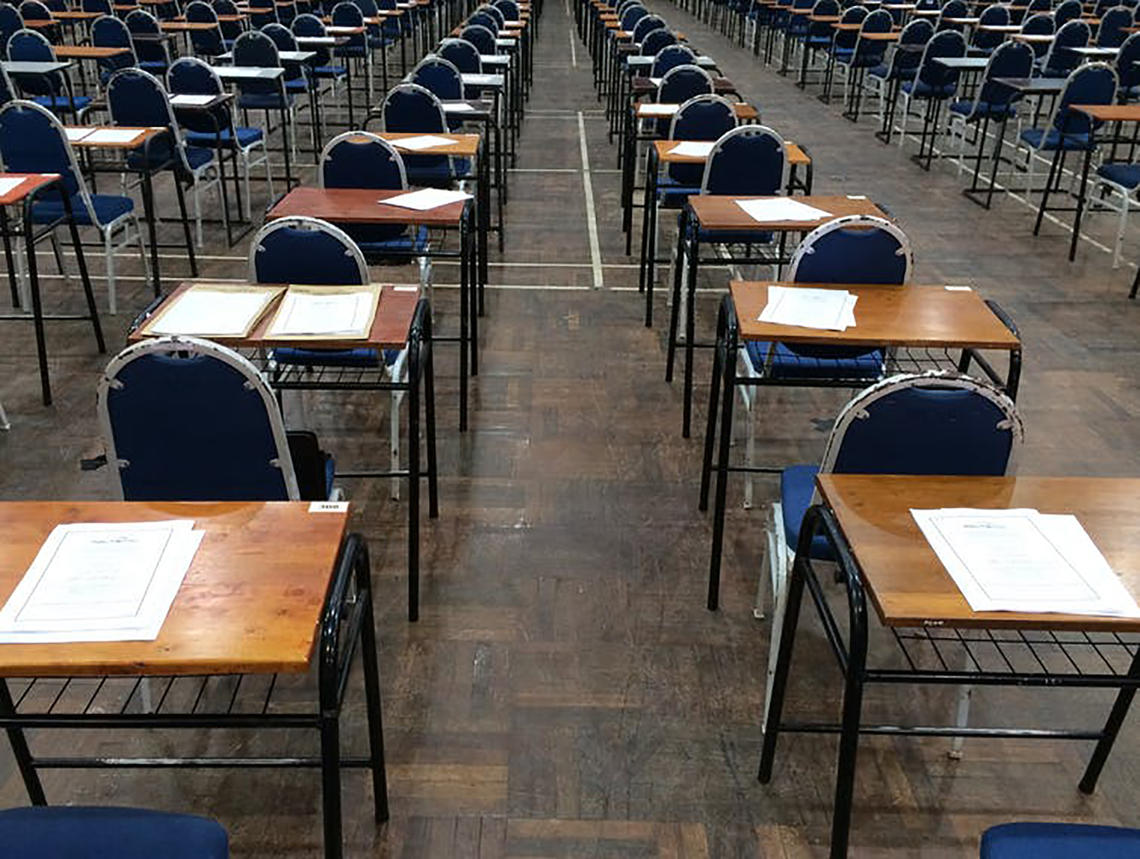Solving The Problem of Academic Contract Cheating
 |
| More research is needed to effectively ensure academic quality. Shutterstock |
"There was about 20 years of research before the pandemic that showed that there was less academic misconduct in online courses compared to face-to-face learning. [It's the fact that students were] forced into online learning when they didn't want to be] as well as inexperienced teachers [not well trained in how to deliver their classes in online learning.""The pandemic has really affected how we teach and learn. It's impacted all aspects of education.""You can have an awesome online learning experience, and you can have a terrible online experience. But I think during the pandemic, students have not generally had awesome online experiences, unless they were working with a teacher who already knew how to teach online.""There was one big study done in Canada, maybe about 15 years ago. And since then, there's been very little data collected in Canada on a large scale.""These companies [specializing in 'contract cheating'] are doing direct marketing outreach to students via Instagram, by a TikTok video, via YouTube.""We will help you [they say], we will support you, we will give you a COVID discount. Your school is open from 8:30 to 4:30; we're there for you 24/7 [examples of messaging to students].""They use words like 'help'. But what they mean is we'll do it on behalf of the student [homework completion by contract].""Students might think doing it once isn't so bad, or they're experimental -- especially it's being pushed on them quite aggressively. And then find themselves not being able to get away from these companies.""We need to name the problem in our policies and our procedures in schools. We need to talk to students about the real risks of engaging with these companies."Sarah Eaton, professor, Wurklund School of Education, University of Calgary
Professor Eaton speaks of an increase in education-cheating that has risen from about 40 percent to 200 percent, basing her numbers on countrywide reports published by academic institutions. It is not Canada alone that has been impacted by students contracting out their work to companies specializing in producing academic papers to match students' assignments, profiting from a business that is in fairly high demand from students who for one reason or another resort to falsifying their educational credits. Misconduct in Canadian post-secondary institutions has absorbed her attention with a special focus on online learning.
General student dissatisfaction, Professor Eaton believes, has led to their becoming prey to a $15-billion global industry specializing in 'contract cheating', defined as students taking steps to outsource assignments, having someone for a fee produce what they feel incapable of doing themselves, in hopes of getting good credit for work not their own. The anonymous writers who work for the 'contract cheating' companies mostly represent underpaid ghostwriters, skilled in writing academic papers and prepared to hire themselves out for that purpose.
 |
| There is insufficient research about academic misconduct in Canada Shutterstock |
The companies they work for, in the absence of legislation outlawing their services and actions, the advertise their services to students, luring them with the prospect of paying a reasonable fee to release themselves from the work involved in producing completed assignments worthy of moving them closer to the degrees they're working toward. The companies, once a student is snagged, are interested in keeping them indebted with aggressive marketing tactics, and even blackmail; threatening to reveal their forbidden access to contract cheating.
According to pre-pandemic modelling, over 75,000 students attending Canada's post-secondary institutions, have taken part in contract cheating. It is as yet unknown to what extent students have compromised their studies and academic records during the time of the pandemic, but by all indications that would be a growing number of students. Being online means contacts of all kind are routine, and among them are unsolicited offers to provide students with affordable papers reflective of their personal requirements.
An online presence also leads to sharing all manner of social-interest items, but more to the point, academic work and answers to test questions. "Many educators made an assumption that students wouldn't share online. And yet, all of us share online all the time", Professor Eaton observed. Companies whose business is that of luring students into their cheating world of profit and academic corruption, percolate easily within post-secondary groups on social media, sending out irresistible messages to those students struggling with assignments.
 |
| Shutterstock |
Payment from students to these alluring companies are made online with use of credit cards and personal contact data exchanged. The unaware student's personal information is now in the company's corrupt possession; email addresses, phone number, enabling the companies to aggressively monitor and harass the student, luring them on to continue plagiarizing academic assignments. Turnaround is fast, texts completed and forwarded within a seven-day period.
In some instances, companies withdraw monthly payments, unauthorized, from the student's credit card, billing them as 'subscription fees'. If any objections are raised, the company can threaten to report the situation to the student's school should the student make an attempt to cancel their credit card. Some countries, like New Zealand, Ireland, Australia have produced legislation making it illegal for contract cheating businesses to operate in their jurisdictions. Britain has tabled similar legislation.
Studying the academic integrity policies of 80 institutions in Canada, Professor Eaton and her study group discovered that only two make mention of contract cheating. "If they're not naming the problem, we're not solving the problem", she commented. Noted, that most institutions make mention of academic misconduct policies which are frequently antiquated and inconsistent. "So the way one university defines plagiarism is totally different from the way another university defines plagiarism", she said.

Labels: Academics, Assignments, Contact Cheating, Contacting Out, Students

0 Comments:
Post a Comment
<< Home